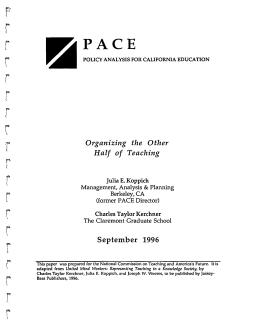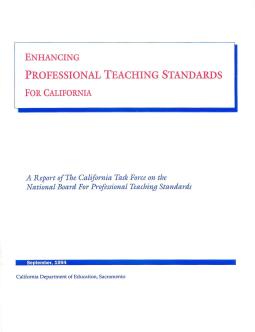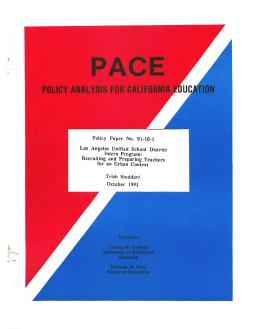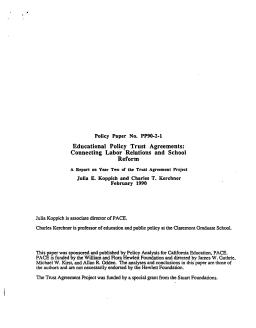Published
Summary
The 1975 Rodda Act, also known as the Education Employment Relations Act, allowed California public school teachers to collectively bargain for employment terms. Similar laws exist in 37 states based on the National Labor Relations Act. This paper advocates for transforming education labor relations to position teachers and unions as leaders in creating a 21st century education institution. The authors hope to inform discussions on improving education quality for California's 5.2 million public school students.
A Report of the California Task Force on the National Board for Professional Teaching Standards
Published
Summary
The California Task Force on the National Board for Professional Teaching Standards, consisting of educators, administrators, parents, and officials, deliberated for eight months on how a national voluntary certification system can impact California's education landscape. They explored questions on the standards, assessment methods, incentives, and potential benefits for teachers, students, and communities. The report aims to start a dialogue and encourage continued improvement in California's schools.
Recruiting and Preparing Teachers for an Urban Context
Published
Summary
Traditional teacher recruitment fails to meet urban area and high-demand subject needs. Alternative certification programs offer a solution but are criticized for being a "quick fix". The LAUSD Intern Program case study addresses questions on effectiveness and preparation of alternative-certified teachers. On-the-job training is context-specific and not a replacement for college-based education.
Connecting Labor Relations and School Reform: A Report on Year Two of the Trust Agreement Project
Published
Summary
The Trust Agreement Project, initiated in September 1987, is a joint effort of 12 California school districts and their teachers' unions. It enables teachers and school management to develop agreements on professional issues beyond the traditional scope of collective bargaining. The agreements cover topics like teacher evaluation and curriculum development, and aim to enhance educational capacity by promoting collective responsibility for educational processes and outcomes. The project appears to be altering decision-making processes and encouraging collaboration between unions and management.



